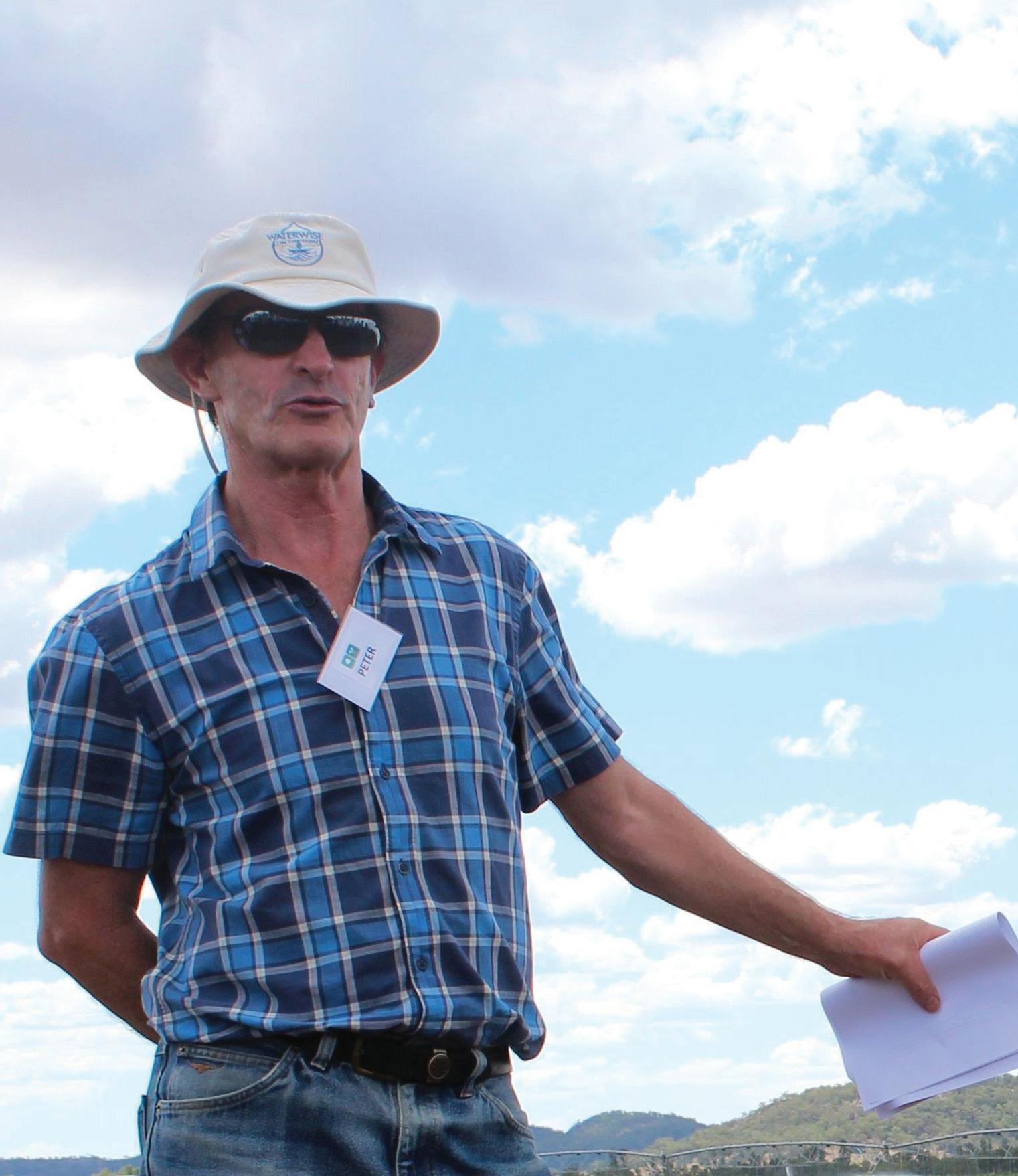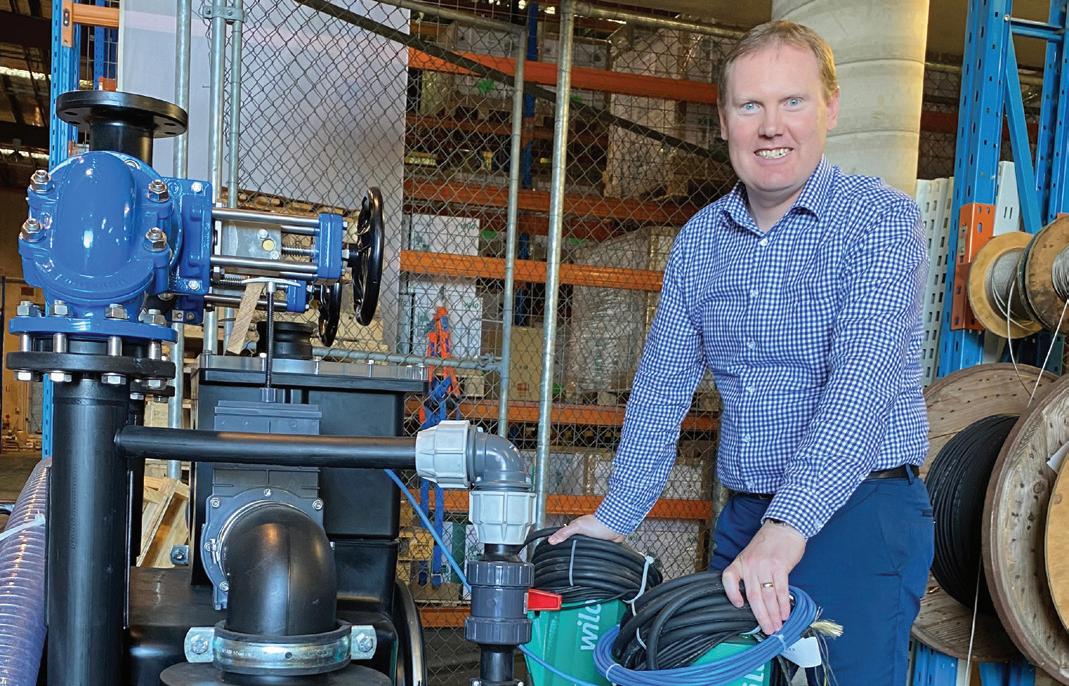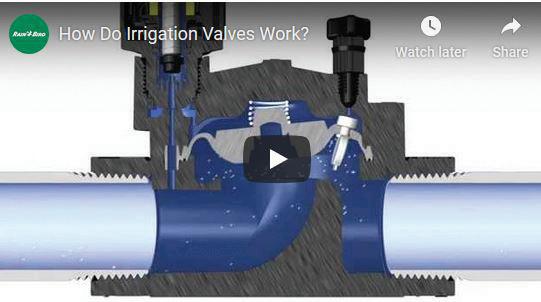
11 minute read
IAL News
MEMBERSHIP RENEWALS EXPLAINED
Some members have been asking about membership renewals, so we thought it a good idea to explain how changes to the Irrigation Australia constitution in 2015 and 2018 affected the renewal process.
Before these changes to the constitution, memberships were renewed at the beginning of each financial year. After the changes were voted on and passed by members, financial year memberships were replaced with anniversary year memberships. New membership categories were also adopted at the same time.
This means that memberships are now anniversary based, so that a membership is active for 365 days and then expires on the 366th day. There is a short period of grace (30 days) to allow for late payments, after which membership ceases.
Irrigation Australia’s automated system is set up so that members are notified when membership is due for renewal and an invoice is sent, as are reminders if necessary.
This ensures that we have a tidy and accurate membership data base which is important when each member has a voting entitlement.
If you have a question about membership, contact Tracy Martin, email tracy.martin@irrigation.org.au.
REGIONAL ROUNDUP
What’s going on in the regions and with membership by Tracy Martin, Irrigation Australia's National Membership and Regions Manager.
COVID-19 has meant that there have been significant changes to the way regional committees are holding meetings, with the priorities now on adhering to state COVID-19 rules and ensuring member safety. As a result, committees have been hosting meetings using teleconferencing or online services. Recently, with some states permitting larger group gatherings, we have been looking at obtaining approval for delivery of face-to-face member events. These networking opportunities are vital to providing knowledge transfer, CPD points and Waterwise re-endorsement activities.
Queensland
The South-East Queensland Regional Committee is working on hosting member events in the latter part of 2020 (restrictions permitting). The first member event is scheduled for Queens Wharf, Brisbane.
The Committee is liaising with the Queensland Local Government Association and the Queensland Institute of Public Works Engineering Australasia to discuss collaborating on training and certification for the region.
At the last meeting, it was agreed that a Waterwise subcommittee be formed, which is reviewing the Waterwise Program’s manuals to align them with Queensland regulations, standards and terminologies. After the review is finished in the next few months, the sub-committee will develop an implementation strategy for the region.
Western Australia
The WA Regional Committee has been holding monthly virtual meetings and hosted a successful member breakfast and networking event at Ozone Reserve in East Perth in August. Featured were: • Blake Humble, City of Perth, who provided an overview of the City of Perth’s irrigation network, and recent projects for water security, water quality and water efficiency • Mark Pipes, Elliotts Irrigation, who discussed the supply and installation of the groundwater filtration system (40 LPS) • Don May, Aquamonix, who presented on the supply of the
Rainman irrigation central control system.
Melbourne
With Stage 4 restrictions in Melbourne, the Urban Committee is holding virtual meetings. A working group has been formed to look at opportunities for aligning with Waterwise programs.
South Australia
As a result of member concerns, the committee is working on clarifying rules around non-drinking water and the use of lilac piping .
Irrigation Australia wrote to the Premier, Minister for Water and Minister for Agriculture seeking a change to the Office of the Technical Regulator (OTR) Guidelines for Non-drinking Water. A meeting will hopefully be organised with the SA Government. We will keep members up to date on the outcomes of these discussions.
New South Wales
The Sydney regional committee is changing its focus from water restrictions to other areas of services to our members such as events, engagement with councils and training.
PETER TALKS METERS

Non-urban water metering continues to roll out in the eastern states, and interest in other jurisdictions and the number of CMIs continue to increase. The understanding of metering principles, regulatory requirements and practical issues that arise at installation and validation is improving, especially in New South Wales.
TABLE. TIMETABLE FOR COMPLIANCE WITH METERING AND TELEMETRY REQUIREMENTS IN NSW
Stage
1
2
3
4 Works covered
All new and replacement meters need to comply with the new standards
Large works all NSW regions:
Surface water pumps 500 mm or larger
Inland northern region: All remaining works that require a meter
Inland southern region: All remaining works that require a meter
Coastal region: remaining works that require a meter
Roll-out date
1 April 2019
1 December 2020
1 December 2021
1 December 2022
1 December 2023
State and territory implementation
New South Wales. The first roll-out date in New South Wales is drawing near. By 1 December this year, all surface water pump installations 500 mm and larger must comply with both metering and telemetry requirements (see table).
For information, download the Department of Planning, Industry and Environment media release from the Irrigation Australia website.
New South Wales has made several significant changes in recent months: • The Water Renewal Taskforce was disbanded at the end of June, and responsibility for metering divested to the relevant agencies which include Department of Primary
Industries and Environment (DPIE), WaterNSW, and the
Natural Resources Access Regulator (NRAR). This marks a change from the establishment of a task team in 2017 to implement non-urban water metering. • An updated New South Wales Non-Urban Water
Metering Policy was released in June by DPIE. It has refined detail in most existing sections and includes new sections on Local Intelligence Devices (LIDs), telemetry and the Data Acquisition Service (DAS). • A list of approved loggers and telemetry units has been released and can be downloaded from the Department of Planning, Industry and Environment website
The department funded a series of related training events for CMIs which were developed and delivered by
Irrigation Australia during June, July and August. • The text version of the Water Meter Validation
Certificate has been replaced by the ‘ DQP Portal’ which is a secure website that can be used on a computer, laptop, tablet, or smartphone. It is now the only means for submitting validation certificates, certificates for the design of new open channel metering equipment and generating a report for transitional arrangements for keeping existing metering equipment. • The Floodplain Harvesting Measurement Policy 2020 was released and can be downloaded from the
Department of Planning, Industry and Environment website. Irrigation Australia has been engaged to develop and deliver training and certification for installers and validators. Enrolment in the Certified
Storage Meter Installer and Validator program is now open.
Other jurisdictions. There have been no changes for other jurisdictions.
Code of conduct and complaints procedure
Response by CMIs to the Code of Conduct and Complaints Procedure is pleasing with over 90 per cent having signed their agreement. Everyone who completes the training is required to sign both documents before they can be certified. For certification to be renewed, it is a requirement for a CMI to have signed up to both documents.
Enquiries
Enquiries have continued to increase. Most are seeking clarification of specific legislative and technical requirements and, with the launch of the DQP Portal in NSW, several inquiries have been received about this. I encourage CMIs to contact me if you encounter issues with the portal as this will help with speedy implementation of improvements.
Training course
The training course has continued to experience high levels of demand and is being delivered using virtual technology. With the limits on travel and gatherings due to the continued COVID-19 pandemic, some people have experienced difficulties completing their practical assessments. The training team at Irrigation Australia are keen to work individually with those involved to achieve completion.
News
Flow disturbances that affect metering can be confusing. Irrigation Australia has prepared a factsheet, Understanding Flow Disturbances for Non-Urban Water Meters, for CMIs. Download it from the Irrigation Australia website.
The number of pattern-approved meters continues to grow. For the latest, go to the Irrigation Australia website.
MACE meters – after much effort, MACE has decided not to continue pursuing pattern approval of their AgriFlo XCi water meter. You can read their letter on the Irrigation Australia website.
Information
For more information about non-urban meters, contact Peter Phone: 0455 973 780 Email metergovernance@irrigation.org.au
Peter Smith, Metering Governance Officer, Irrigation Australia
FIND AN IRRIGATION SPECIALIST
If you are looking for an irrigation specialist, then the Irrigation Australia website is your one-stop-shop. Just type in a postcode and irrigation professionals listed in the area will be shown, along with their contact details.

IAL BOARD DIRECTORS
Andrew Ogden (Chairman)
Western Irrigation, Bibra Lake WA 6163 P: 08 9434 5678 M: 0411 750 770 E: andrew@westernirrigation.net.au
Colin Bendall
Peter Brueck
Waterwise Consulting, Bangor NSW 2234 M: 0411 425 831 E: peter@wwconsulting.com.au
Peter Durand
Netafim, Laverton Vic 3028 P: 03 8331 6500 M: 0407 975 401 E: peter.durand@netafim.com
Les Olivieri
M: 0447 300 531 E: olivieri@bigpond.net.au
John Pivac
Vinidex, Virginia Queensland 4014 P: 08 8300 9254 M: 0439 887 971 E: jpivac@vinidex.com.au
Simon Treptow
Irrigear Stores, Mornington Victoria 3931 P: 03 5976 1588 M: 0438 695 170 E: simon@irrigear.com.au
Momir Vranes
Carl Walters
Goulburn-Broken Catchment Management Authority, Shepparton Victoria 3632 P: 03 5822 7711 M: 0419 118 237 E: carlw@gbcma.vic.gov.au
CONFERENCE AND EXHIBITION POSTPONED
As result of the COVID-19 pandemic and restrictions on travel and large gatherings of people, Irrigation Australia Conference and Exhibition along with the International Commission on Irrigation and Drainage 24th Congress and 71st International Executive Council Meeting have been postponed and will now be held 6 to 12 July 2021.
UP CLOSE
We get up close to Kieran Killoran from Wilo in Brisbane and talk to him about his work and perspectives on pumping technology and innovation.

IA. What is your role with Wilo and how long have you worked in the pump industry?
Kieran. I am the Managing Director of Wilo Australia and am responsible for steering the business towards growth in our current markets, as well as for exploring new markets and territories for niche areas where we can apply products and solutions from our extensive range.
I have worked in the pump Industry since 2006 in Europe and Australia across all sectors of the market, from building services, industrial (OEM and mining) and municipal water and wastewater transport and treatment.
IA. Can you tell us about Wilo and its role in the Australian irrigation sector?
Kieran. Wilo is one of the world’s leading premium European manufacturers of pumps and pump systems. It was founded in 1872 as a copper and brassware factory in Dortmund, Germany; we now have 60 subsidiaries in more than 50 countries. In 2019, we recorded our tenth successive year of record sales, achieving $2.4Billion.
We see our role in the Australian irrigation sector as a solutions provider through selling high efficiency, premium products that will be the lowest cost supplier over a whole life-cycle cost analysis. In other words, we focus on providing the best value to the sector in the long term.
IA. What are the key trends as far as pump innovation and technology are concerned?
Kieran. Wilo has identified six global megatrends, which are globalisation, urbanisation, energy shortage, digital transformation, water shortage and climate change.
From our perspective, all these trends are impacting the Australian economy. To respond to these trends, Wilo believes it has a corporate social responsibility to design the most innovative products to be intelligent and energy efficient, but also to conserve resources and reduce negative effects upon our environment.
IA. What do you think will be the biggest challenge for the irrigation industry in the next couple of years?
Kieran. Global warming is causing longer drought periods in Australia resulting in falling production and higher costs in our agricultural sector. With records continuing to be broken, for example, November 2019 was one of the driest Novembers on record, the industry is facing a serious challenge. This places a huge responsibility on all stakeholders in the irrigation sector to do their part to support the food supply chain. Wilo want to step up and play our part to support the sector where we can as a premium component supplier.
IA. What was the last book your read and where will your next holiday be?
Kieran. My last book was Working with Emotional Intelligence by Daniel Goleman.
It was an interesting take on how an emotionally intelligent organisation can provide high levels of motivation and team cohesion, strengths that can be more important than technical or operational competence.
Unfortunately, because of COVID, I will not be visiting friends and family in Ireland this year or next. We have plans to rent a house and spend time with friends in Noosa for a week over Christmas.
HOW DOES IT WORK?
Do you need to check out the finer points of how irrigation valves work? Or maybe it’s how to do a catch can test under centre pivots, or how canal automation works? Check out the irrigation videos page on the Irrigation Australia website (click below).











